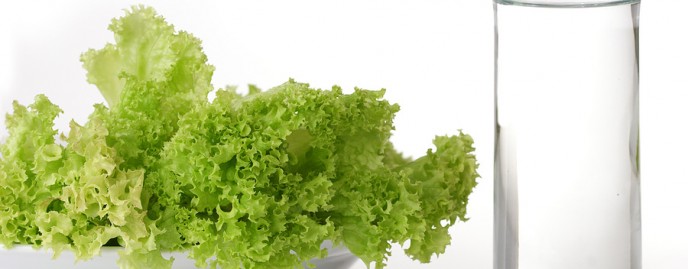By weight, humans are about 70% water. In fact, the entire body functions in a fluid medium. Water is on the inside of the cell, and on the outside. Yet, few people today drink enough water to make a difference in their health. As Americans we drink almost everything but pure water. We drink many things that have water in them, but these drinks are flavored with sugar, which creates obesity, caffeine which makes the blood thicker, and milk protein like casein, which stimulates allergies. How important is Water? All of life exists in a fluid medium…all of the life- sustaining reactions of metabolism are dependent on water. We can live without food for 30 days, but only 5-6 days without water! The body needs about 2500 gallons of water each day to carry on its metabolic functions.
Ways the Body Loses Water
To meet this demand for water, the body recycles LARGE amounts of water-and only a small amount is lost each day!
- 5.5 glasses lost to urine
- 2 glasses lost to exhaling of lungs
- 0.5 glass lost to elimination of bowels
- 2 glasses lost by way of perspiration
Total water lost = 10 glasses
Water Intake-Minimums
We need a minimum of 10 glasses per day equal to the 10 glasses lost. Here are some ways that we get water into the body:
- 3 glasses – Water in food (fruits, veggies)
- 1 glass – water released from metabolism
- 6 glasses – water we need to drink (Min.) (depending on sweat losses)
Total Needed = 10 glasses
How to Make Sure You Are Getting Enough Water
Water Intake must be regular, and adequately spaced
- Start of Day……..2 glasses – before breakfast.
- Mid-Morning……2 glasses – before lunch
- Late Afternoon….2 glasses – before supper
- Evening……..1-2 glasses – before retiring
Keep in mind that thirst is an inaccurate indicator of the body’s need for water. We must drink all we naturally desire plus 1/3 more, in order to be adequately hydrated.
How Water Intake Affects Exercise in the Heat
Athletes in a Harvard University experiment were asked to perform under various conditions and the results were observed:
- No water….16 miles, athletes report feeling very tired
- Enough water to quench thirst….19 miles, fairly fresh condition
- Water intake = water loss….after16 miles, subject reports he can “go on all day”
Research shows that during work, people do not voluntarily drink as much water as they lose in sweat! (they usually drink only 2/3 of the total water loss).
Physiological Change in the Heat-No Water
- Rectal temp. and pulse rise to uncomfortable levels
- Rate of sweating declines steadily
- Mechanical efficiency decreases – increase in oxygen consumption
- Subject feels worse and worse… “out of the race” due to exhaustion & dehydration
Markers for Adequate Water Intake
- Dark yellow urine is a sure sign of inadequate water intake
- Make sure you have clear urine at least twice a day
- That second glass between meals REALLY MAKES A DIFFERENCE!
Keep the benefits in mind…it takes 21 days to change a habit!
Guidelines for Drinking Water
Water should be imbibed no later than 1/2 hour before the meals. It’s best to drink midway between meals. No water should be taken with meals….it diminishes the flow of the salivary glands, and hinders carbohydrate digestion. The body has to warm the cold water before digestion can proceed. Water taken with a meal slows digestion, until all the water is absorbed, and the concentration of hydrochloric acid comes back to normal. Water imbibed with food also dilutes the digestive juices, and digestion takes longer, and is more difficult.
Benefits of Water Intake
Water between meals hydrates the blood, allowing the digestive glands to draw more water for the formation of digestive juices. It accelerates the movement of blood in the stomach. The vessels and digestive glands become more active, and it quickens stomach function. Water at the appropriate time produces a dramatic increase in the activity of the skin, bowels, and kidneys. It increases elimination of urea & other solid wastes, and more sweat, and more body wastes are eliminated. It has a powerful influence on metabolism in that it increases the assimilation of nutrients and the removal of wastes. It solves the constipation problem.
Other Benefits of Water Intake
- Thins and increases the blood volume
- Reduces the hematocrit level…dramatically reduces the risk for blood clots, and the risk of fatal heart attacks and strokes.
- Heart movements become more energetic… increases the activity of the glands, organs and the lungs
- Keeps body temp. low during exercise
- Helps reduce bad breath
- Water is a NATURAL diuretic!
Water also solves the personal energy crisis. “Doctor I’m so tired” which is the #1 complaint in the doctor’s office. It is interesting that the scriptures declare: “He drinks no water and grows faint” (Isaiah 44:12). Energy levels increase noticeably after water intake, and there is immediate decrease in severity of allergy attacks. How important then to make the intake of pure water a regular habit!

